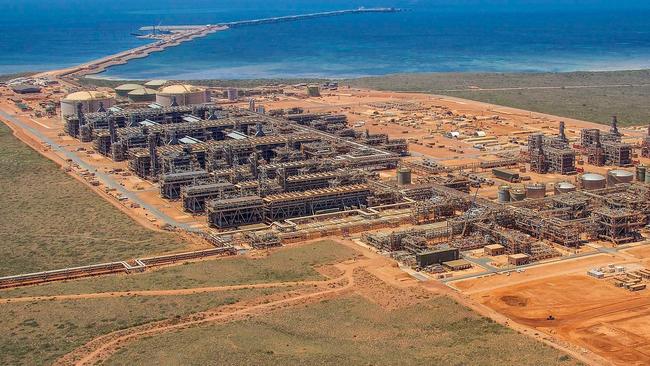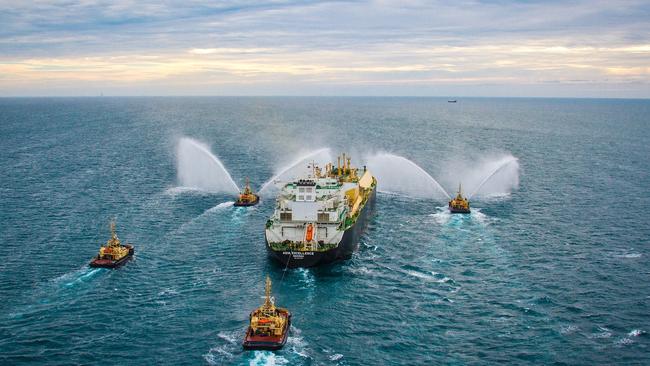Chevron calls for consultation with Labor on environmental amendments after backflip
Chevron is demanding Labor consult on an upcoming overhaul of environmental legislation that is shaping up as the next battleground between the LNG sector and the federal government.

Labor must meaningfully consult with industry over plans to overhaul the Environment Protection and Biodiversity Conservation Act after its disappointing decision to pull a widely-watched legislative tweak that would have stopped a spate of legal challenges by environmentalists, a senior Chevron executive has demanded.
Labor last week withdrew legislation that would have closed a legal avenue exploited by environmentalists to curtail new LNG developments, after striking a deal with the Greens for support of its wider legislative agenda.
The decision clouds the future of Australia’s most important industries and exacerbates concerns about regional energy security, though the federal Labor government has insisted it has not abandoned the pledge, and rather would continue to consult and refine it, so it could pass through parliament.
Still tensions between the industry remain high as the country’s LNG industry – a major employer and one of Australia’s most lucrative exports – insists the government has consistently committed to substantial policy tweaks before consulting with them to understand the ramifications.
In a sign that the industry is now readying for the next battleground involving the EPBC tweaks, Chevron Australia’s operations director Danny Woodall said the government must consult with them and the wider industry, especially in the wake of the decision to withdraw a commitment to close a legal avenue exploited by opponents to offshore gas.
“In concept, we agree that it is probably time for an update of the EBPC, but with all of these things – the devil is in the details, and we feel like we haven’t got down to those details yet. What we have asked for is meaningful consultation so we can have some input and understanding of what is in these changes,” said Mr Woodall.
“We are disappointed that we did have a chance to have some adjustments to the consultation process, mainly to clarify the process and codify a process that we can all work towards … we would like to know what good looks like in the eyes of the government, and we can rely on that.”

The government had assured the industry earlier this year it would move to define who offshore gas developers would need to consult after Santos suffered damaging delays when indigenous claimants alleged the company had failed to consult with them prior to works beginning on its $5.7bn project.
A Federal Court judge dismissed one claim against a critical 262km pipeline, while Santos was forced to submit a new environmental plan, costing months.
While Santos was able to mitigate much of the impact, it still now expects first gas to be some three months later than initially expected and the project will cost some $US300m ($456.3m) more.
Efforts to define specifically who must be consulted with first are opposed by environmentalists, insisting the industry is moving to curtail indigenous rights.
While the government plots a path between the two groups, the EPBC tweaks may come first, and the LNG industry is readying for a potential fight.
The government is already under pressure from the WA state government, with Premier Roger Cook urging a delay.
Environmentalists are urging the insert of a so-called climate trigger be placed in the EPBC legislation, which would require every approval decision include a requirement that decision makers consider the impact of climate change – potentially problematic for fossil fuels projects.
Asian neighbours such as Japan, Korea and China are reliant on LNG to meet their own energy needs and transition off coal.
Australia’s domestic market could also be served by bolstering gas.
WA is heavily reliant on gas from offshore, while east coast states may also have to turn to importing LNG to safeguard manufacturing industries and electricity supplies.
Australia’s east coast faces a looming shortfall.
The Australian Energy Market Operator earlier this year warned that the region may have supply shortfalls as soon as next winter, forcing some generators to burn diesel to guarantee electricity supplies.
One possible solution would be importing LNG into Australia’s east coast via so-called import terminals, vital if the likes of Victoria — the country’s most gas-dependent state — is to guarantee electricity supplies and curtail possible price rises.
* The reporter travelled as a guest of Chevron







To join the conversation, please log in. Don't have an account? Register
Join the conversation, you are commenting as Logout